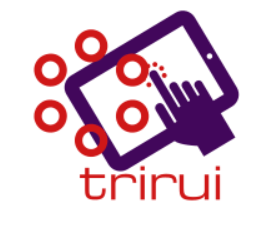GCP (Google Cloud Platform) is a suite of cloud computing services offered by Google. It provides a wide range of infrastructure, platform, and software services for developers, businesses, and organizations to build, deploy, and manage applications and services. Here’s an overview:
Core Services in GCP
1. Compute
- Compute Engine: Virtual machines (VMs) running in Google’s data centers.
- App Engine: Fully managed platform for building scalable web applications.
- Kubernetes Engine (GKE): Managed Kubernetes service for containerized applications.
- Cloud Functions: Serverless platform for event-driven workloads.
- Cloud Run: Serverless platform for running containerized applications.
2. Storage and Databases
- Cloud Storage: Object storage for storing any type of data.
- Cloud SQL: Managed relational databases (MySQL, PostgreSQL, SQL Server).
- Cloud Spanner: Globally distributed, scalable relational database.
- Firestore: NoSQL database for real-time applications.
- Bigtable: Scalable NoSQL database for analytics and operational workloads.
3. Networking
- Virtual Private Cloud (VPC): Secure and scalable networking.
- Cloud Load Balancing: Distribute traffic across resources.
- Cloud CDN: Content delivery network for fast content delivery.
- Cloud Interconnect: Dedicated network connectivity.
4. AI and Machine Learning
- Vertex AI: Unified platform for building and managing ML models.
- AI APIs: Pretrained models for natural language processing (NLP), speech, vision, and more (e.g., Cloud Vision, Cloud Speech-to-Text).
- TensorFlow on GCP: Scalable ML training and inference.
5. Big Data and Analytics
- BigQuery: Serverless, scalable data warehouse for analytics.
- Dataflow: Stream and batch data processing.
- Dataproc: Managed Hadoop and Spark clusters.
- Pub/Sub: Messaging service for event-driven systems.
6. Developer Tools
- Cloud Build: CI/CD pipelines for building and deploying applications.
- Cloud Source Repositories: Private Git repositories.
- Cloud Deployment Manager: Automates infrastructure deployment.
7. Identity and Security
- Identity and Access Management (IAM): Manage permissions for resources.
- Cloud Security Command Center: Security management and threat detection.
- Cloud KMS: Managed key encryption services.
- BeyondCorp: Zero Trust security model.
Key Features of GCP
- Global Infrastructure: Operates in regions and zones across the globe, offering high availability and fault tolerance.
- Scalability: Automatic scaling for workloads.
- Integration with Open Source: Works well with open-source tools and software, such as Kubernetes and TensorFlow.
- Cost-Effectiveness: Offers competitive pricing, sustained use discounts, and free tier options.
- Sustainability: Google operates carbon-neutral data centers and offers tools for tracking and reducing emissions.
Common Use Cases
- Hosting websites and web applications.
- Data analytics and business intelligence.
- Machine learning and AI model training.
- Running microservices or containerized applications.
- Building IoT applications.
Getting Started with GCP
- Set up a GCP Account:
- Sign up for GCP and get free credits (typically $300 for new users).
- Choose a Service:
- Determine the right service for your use case (e.g., Compute Engine for VMs, App Engine for web apps).
- Create a Project:
- Group resources under a project for better organization and billing.
- Use the Console or CLI:
- Manage resources using the GCP Console or the
gcloudCLI.
- Manage resources using the GCP Console or the
- Learn Best Practices:
- Use IAM for access control.
- Set up monitoring with Cloud Monitoring and Cloud Logging.
GCP is especially well-suited for organizations looking to leverage Google’s expertise in AI/ML, big data analytics, and global-scale infrastructure. Whether you’re a small startup or a large enterprise, GCP provides tools to meet your needs.

